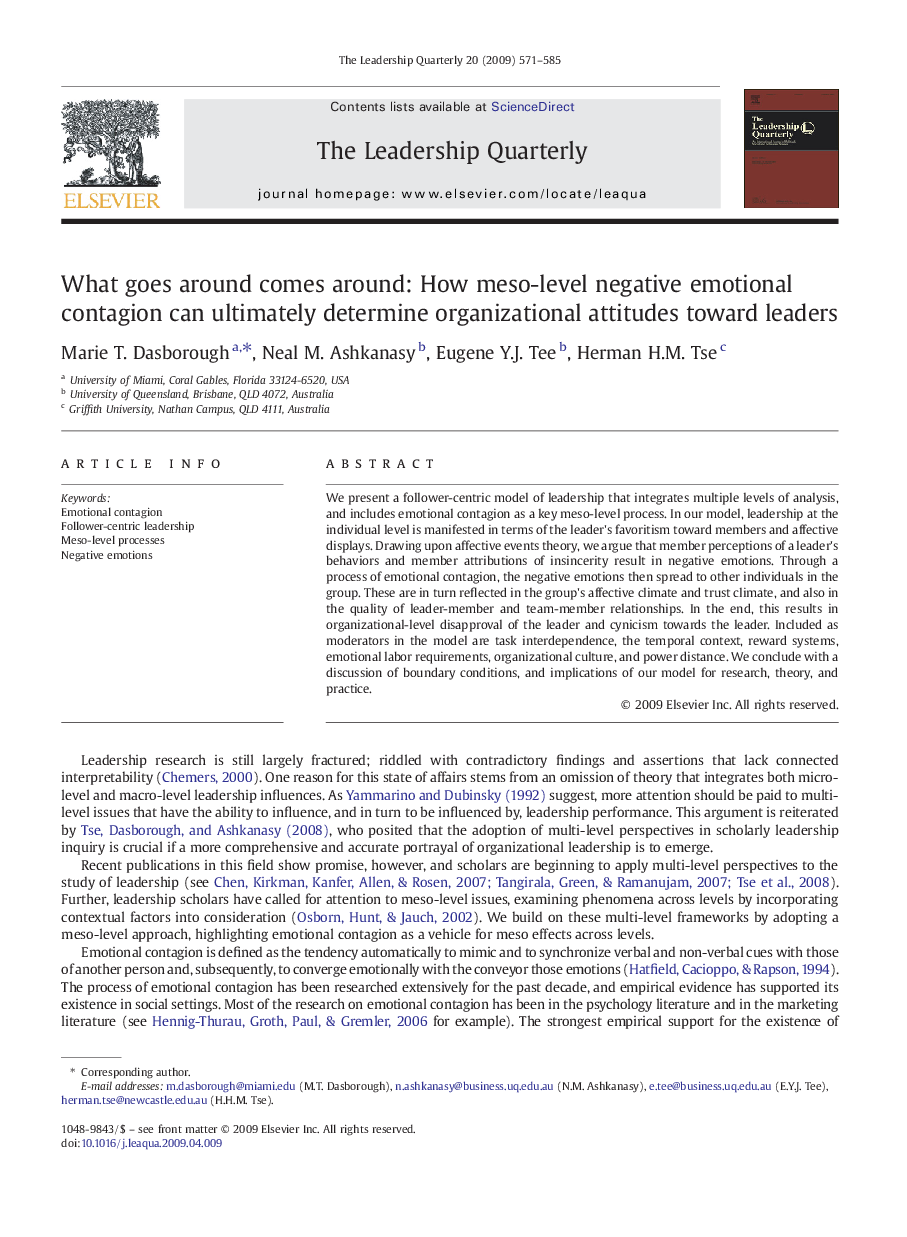| Article ID | Journal | Published Year | Pages | File Type |
|---|---|---|---|---|
| 888251 | The Leadership Quarterly | 2009 | 15 Pages |
We present a follower-centric model of leadership that integrates multiple levels of analysis, and includes emotional contagion as a key meso-level process. In our model, leadership at the individual level is manifested in terms of the leader's favoritism toward members and affective displays. Drawing upon affective events theory, we argue that member perceptions of a leader's behaviors and member attributions of insincerity result in negative emotions. Through a process of emotional contagion, the negative emotions then spread to other individuals in the group. These are in turn reflected in the group's affective climate and trust climate, and also in the quality of leader-member and team-member relationships. In the end, this results in organizational-level disapproval of the leader and cynicism towards the leader. Included as moderators in the model are task interdependence, the temporal context, reward systems, emotional labor requirements, organizational culture, and power distance. We conclude with a discussion of boundary conditions, and implications of our model for research, theory, and practice.
